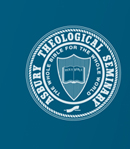Abstract
Founded in 1939, in the mid-twentieth century, Pioneer Girls was a vital Christian youth movement providing an explicitly evangelical alternative to Girl Scouts. Using David Bebbington's classic four-point definition, this article will explore the evangelical identity of the organization, including its continuities and discontinuities with fundamentalism as part of the new evangelicalism of the post-World War II era. While 1950s America is well known for the ways in which this time and place was oppressive for girls and women, and the evangelical movement in general is often criticized for suppressing girls and women, a study of Pioneer Girls does not fall in line with these expectations. Instead, the organization consistently challenged girls to pursue a variety of tasks and vocations that were stereotypically male. Likewise, women found working for Pioneer Girls a fulfilling and liberating experience.
DOI
10.7252/Journal.01.2008F.07
Recommended Citation
Larsen, Timothy
(2008)
"Pioneer Girls: Mid-Twentieth-Century American Evangelicalism's Girl Scouts,"
The Asbury Journal:
Vol. 63:
No.
2, p. 59-79.
Available at:
https://place.asburyseminary.edu/asburyjournal/vol63/iss2/8

